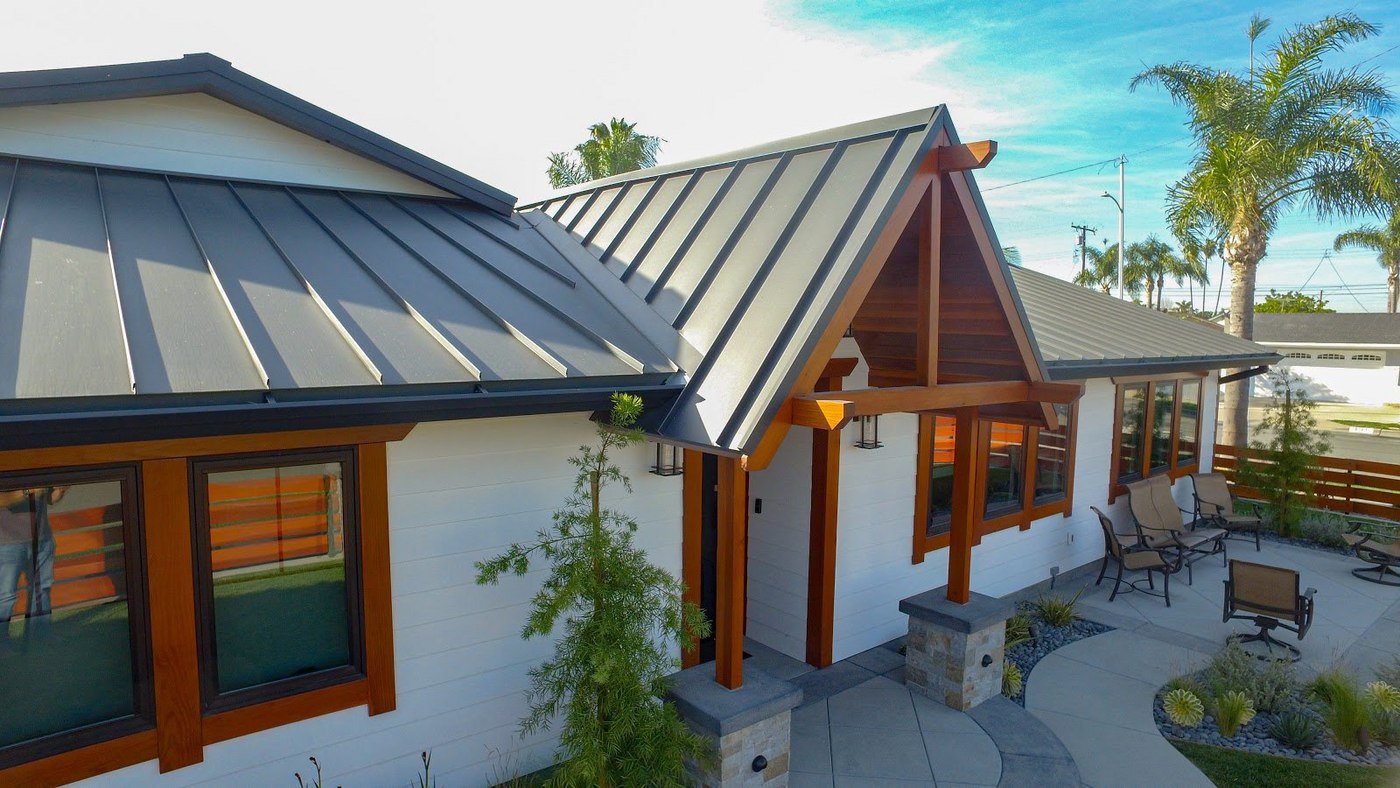In the world of construction, metal roofing has emerged as a top choice. It’s a durable, sustainable option that’s gaining popularity.
Contractors and homeowners alike are recognizing its benefits. Longevity, energy efficiency, and recyclability are just a few. But with so many metal roofing types available, making a choice can be daunting.
This guide aims to simplify that process. It provides an overview of the various metal roofing options available in the market.
From steel to aluminum, copper to zinc, each type has its unique benefits and applications. Understanding these can help contractors make informed decisions for their projects.
Whether you’re a contractor, architect, builder, or homeowner, this guide will equip you with the knowledge you need. Dive in to explore the world of metal roofing types and find the perfect solution for your project.
Understanding Metal Roofing
Metal roofing is not a new concept. It has been used for centuries due to its durability and strength. Today, it’s a preferred choice for both residential and commercial projects.
The rise in popularity is due to several factors. Advancements in technology have led to improved performance and aesthetics. Plus, the variety of metal roofing types caters to diverse architectural styles.
But what sets metal roofing apart is its sustainability. It’s a green building material that aligns with the trend towards eco-friendly construction practices.
Benefits of Metal Roofing
One of the key benefits of metal roofing is its longevity. With proper installation and maintenance, it can last for decades.
It’s also energy-efficient. Metal roofs reflect solar heat, reducing cooling costs in the summer. Some types even have Energy Star ratings, further enhancing their efficiency.
Another advantage is its recyclability. Unlike other roofing materials, metal can be recycled at the end of its life. This reduces waste and contributes to sustainable building practices.
Considerations for Contractors
For contractors, choosing the right metal roofing type is crucial. It depends on the specific needs of the project and the local climate.
Installation techniques also play a role. Some types require specialized skills, making contractor expertise essential.
Maintenance requirements vary between types. Understanding these can help contractors provide accurate information to their clients.
Lastly, cost is a factor. While metal roofing can be more expensive upfront, its durability and energy efficiency can lead to long-term savings.
Common Metal Roofing Materials
There are several types of metal used in roofing. Each has its unique properties and benefits.
The most common materials include steel, aluminum, copper, and zinc. The choice depends on factors like cost, durability, and aesthetic preferences.
Let’s delve into each of these materials. We’ll explore their characteristics and why they might be a good fit for your project.
Remember, the right material can significantly impact the performance and lifespan of the roof.
Steel Roofing
Steel is a popular choice for roofing. It’s known for its strength and durability.

It’s also corrosion-resistant. This makes it suitable for various climates, including those with heavy rainfall.
Steel roofing comes in different types. These include galvanized, galvalume, and weathering steel, each with its unique properties.
Despite its robustness, steel is relatively affordable. This makes it a cost-effective option for many projects.
Aluminum Roofing
Aluminum is another common roofing material. It’s lightweight and highly resistant to corrosion.
This makes it ideal for coastal areas. Aluminum can withstand saltwater corrosion, a common issue in these regions.
While more expensive than steel, aluminum requires little maintenance. It’s also recyclable, adding to its eco-friendly credentials.
Aluminum can be painted or coated. This allows for a range of color options to match different architectural styles.
Copper Roofing
Copper roofing is a premium option. It’s known for its aesthetic appeal and longevity.
Over time, copper develops a patina. This gives it a distinctive, aged look that many find appealing.
While copper is more expensive, it’s extremely durable. A well-maintained copper roof can last for over a century.
However, copper requires skilled installation. It’s also heavier than other materials, which may impact structural requirements.
Zinc Roofing
Zinc is a versatile roofing material. It’s known for its self-healing properties.
If scratched, zinc can recover over time. This helps maintain its appearance and prolong its lifespan.
Zinc is also corrosion-resistant. It has a lower melting point, making it easier to shape into various roof profiles.
While zinc is more expensive upfront, its durability can lead to long-term savings. It’s also recyclable, aligning with sustainable building practices.
Metal Roofing Types and Profiles
Beyond the material, the type and profile of metal roofing also matter. They can affect the roof’s performance and aesthetics.
There are several types to choose from. These include corrugated metal roofing, standing seam, metal shingles, and stone-coated steel roofing.
Each type has its unique features and benefits. Let’s explore each of them in detail.
Remember, the right type can enhance the functionality and curb appeal of your project.
Corrugated Metal Roofing
Corrugated metal roofing is a cost-effective option. It’s commonly used in residential and agricultural buildings.
This type of roofing is characterized by its wavy pattern. This design enhances its strength and durability.
Corrugated metal roofing is lightweight. This makes it easier to install and reduces the load on the building structure.
Despite its affordability, corrugated metal roofing can withstand harsh weather conditions. It’s a practical choice for budget-conscious projects.
Standing Seam Metal Roofing
Standing seam metal roofing is a popular choice. It’s known for its sleek appearance and concealed fasteners.
This type of roofing features long, narrow panels. The panels interlock, creating raised seams.
Standing seam metal roofing is durable and leak-resistant. The concealed fasteners add to its clean look.
While more expensive, standing seam roofing offers superior weather protection. It’s a great choice for both residential and commercial projects.
Metal Shingles and Tiles
Metal shingles offer an alternative to traditional shingles. They come in a range of styles and colors.
Metal shingles can mimic the look of wood, slate, or clay tiles. This makes them a versatile choice for various architectural styles.
Despite their aesthetic appeal, metal shingles are durable. They can withstand extreme weather conditions.
While more expensive than corrugated roofing, metal shingles offer a balance of beauty and performance.
Stone-Coated Steel Roofing
Stone-coated steel roofing combines the look of traditional tiles with the durability of metal.
This type of roofing features a layer of stone chips on the surface. This gives it a unique, textured appearance.
Stone-coated steel roofing is highly durable. It can resist harsh weather conditions, including high winds and hail.
While more expensive, stone-coated steel roofing offers a premium look. It’s a great choice for upscale residential projects.
Selecting the Right Metal Roofing
Choosing the right metal roofing is crucial. It can impact the success of your project.
The right choice depends on several factors. These include the project’s budget, design, and location.
Remember, each type of metal roofing has its strengths and weaknesses. Understanding these can help you make an informed decision.
Let’s delve into the factors to consider when selecting metal roofing.
Factors to Consider
First, consider the project’s budget. Some types of metal roofing are more expensive than others.
Next, think about the design of the building. The roofing should complement the architectural style.
Also, consider the building’s location. Some types of metal roofing are better suited for certain climates.
Lastly, consider the building’s structural requirements. Some types of metal roofing are heavier than others.
Environmental and Geographic Suitability
The environment and geography of the project site are important. They can affect the performance of the metal roofing.
For instance, in coastal areas, choose a corrosion-resistant material like aluminum. It can withstand saltwater corrosion.
In areas with heavy snowfall, consider a type with a smooth surface. This can help shed snow easily.
In hot climates, opt for a type with a reflective coating. This can help reduce cooling costs.
Installation and Maintenance
Proper installation and maintenance are key. They ensure the longevity of your metal roof.
Incorrect installation can lead to problems. These include leaks, noise, and premature wear.
Maintenance needs vary by metal type. Some require more upkeep than others.
Let’s explore these aspects in more detail.
Proper Installation Techniques
Proper installation starts with choosing the right contractor. They should have experience with metal roofing.
The contractor should follow the manufacturer’s instructions. This ensures the roof performs as expected.
The roof should have proper ventilation and insulation. These factors affect its energy efficiency.
Lastly, the contractor should use the right fastening system. This can affect the roof’s durability and appearance.
Maintenance Requirements
Maintenance needs depend on the type of metal roofing. Some types require regular inspections and cleaning.
For instance, copper roofs develop a patina over time. This requires no maintenance.
On the other hand, steel roofs may need periodic painting. This helps prevent rust.
Regardless of the type, regular inspections are crucial. They help detect and fix issues early.
Conclusion
Choosing the right metal roofing type is crucial. It affects the durability, aesthetics, and energy efficiency of a building.
Remember, proper installation and maintenance are key. They ensure your metal roof lasts for decades.
For expert advice and top-quality metal roofing solutions, visit Elite Steel or call us at 904-799-6499 today!


